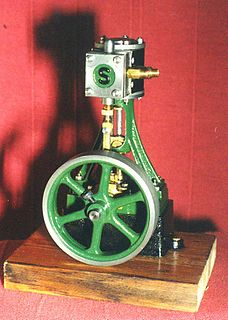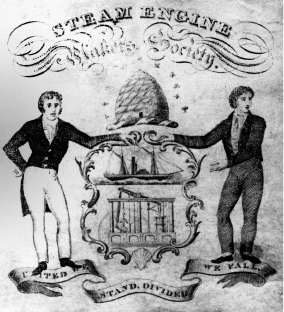Related Research Articles

A machinist is a tradesperson or trained professional, who not only operates machine tools, but has the knowledge of tooling and materials required to create set ups on machine tools including but not limited to milling machines, grinders, lathes, and drilling machines.
In British politics, an affiliated trade union is one that is linked to the Labour Party. The party was created by the trade unions and socialist societies in 1900 as the Labour Representation Committee and the unions have retained close institutional links with it.

Model engineering is the pursuit of constructing proportionally-scaled miniature working representations of full-sized machines. It is a branch of metalworking with a strong emphasis on artisanry, as opposed to mass production. While now mainly a hobby, in the past it also had commercial and industrial purpose. The term 'model engineering' was in use by 1888. In the United States, the term 'home shop machinist' is often used instead, although arguably the scope of this term is broader.

The Modern Records Centre (MRC) is the specialist archive service of the University of Warwick in Coventry, England, located adjacent to the Central Campus Library. It was established in October 1973 and holds the world's largest archive collection on British industrial relations, as well as archives relating to many other aspects of British social, political and economic history.

Tool and die makers are a class of machinists in the manufacturing industries. Variations on the name include tool maker,toolmaker, die maker,diemaker, mold maker,moldmaker or tool jig and die-maker, or Fitter, depend on which area of concentration or industry an individual works in.

The Amalgamated Engineering Union (AEU) was a major British trade union. It merged with the Electrical, Electronic, Telecommunications and Plumbing Union to form the Amalgamated Engineering and Electrical Union in 1992.
The Congress of Irish Unions was a confederation of trade unions in Ireland.

The Irish Trades Union Congress (ITUC) was a union federation covering the island of Ireland.

The Confederation of Shipbuilding and Engineering Unions (CSEU), often known as the Confed is a trade union confederation in the United Kingdom.
The Amalgamated Society of Engineers (ASE) was a major British trade union, representing factory workers and mechanics.
The National Federation of Building Trades Operatives (NFBTO) was a trade union federation in the United Kingdom, consisting of unions with members in construction and related industries.
William Newton was a British trade unionist, journalist and Chartist.

The Steam Engine Makers' Society (SEM) was an early trade union representing engineers in the United Kingdom.
The Amalgamated Instrument Makers' Society was a trade union representing workers involved in manufacturing scientific instruments in the United Kingdom.
The Waterproof Garment Workers' Trade Union was a trade union representing workers involved in making waterproof clothing in the United Kingdom.
Edward Cruse was a British politician and trade unionist, who served on the London County Council.

The National Union of Scalemakers was a trade union representing workers involved in making weighing scales in the United Kingdom and Ireland.
References
- ↑ Arthur Marsh and Victoria Ryan, Historical Directory of Trade Unions, vol.2, pp.16-17